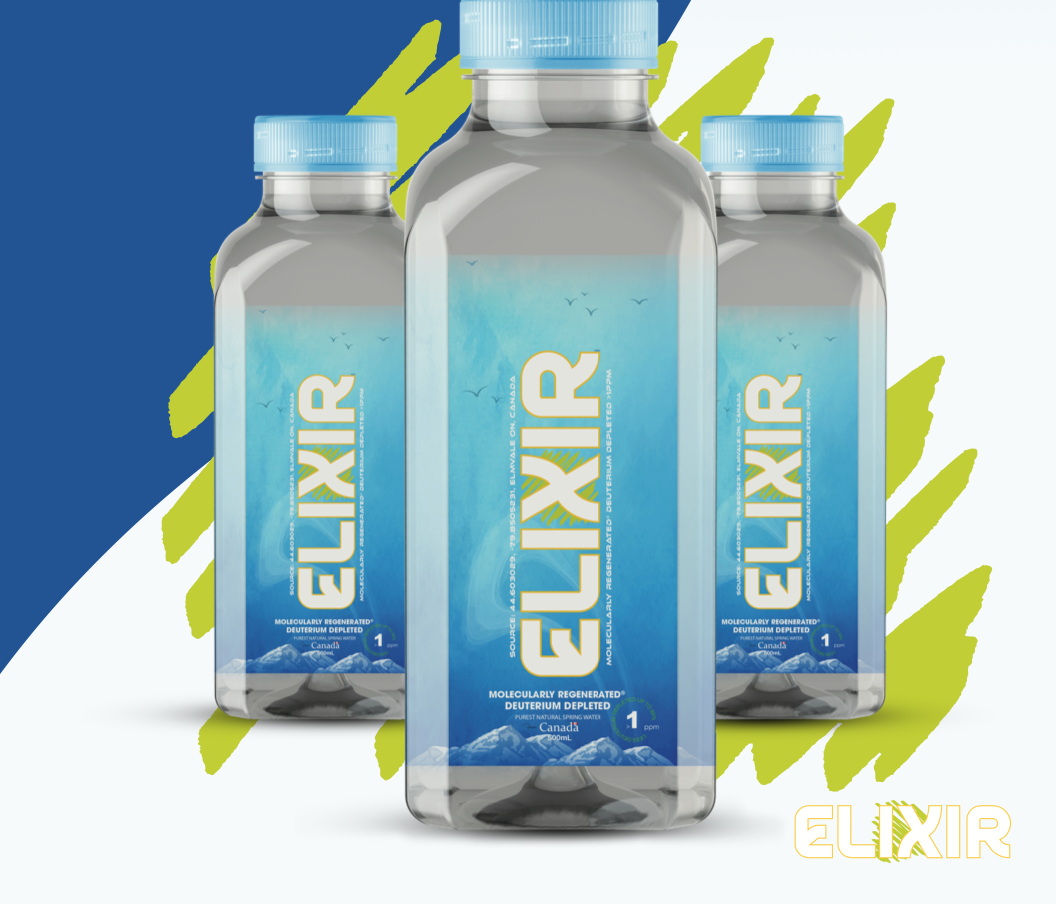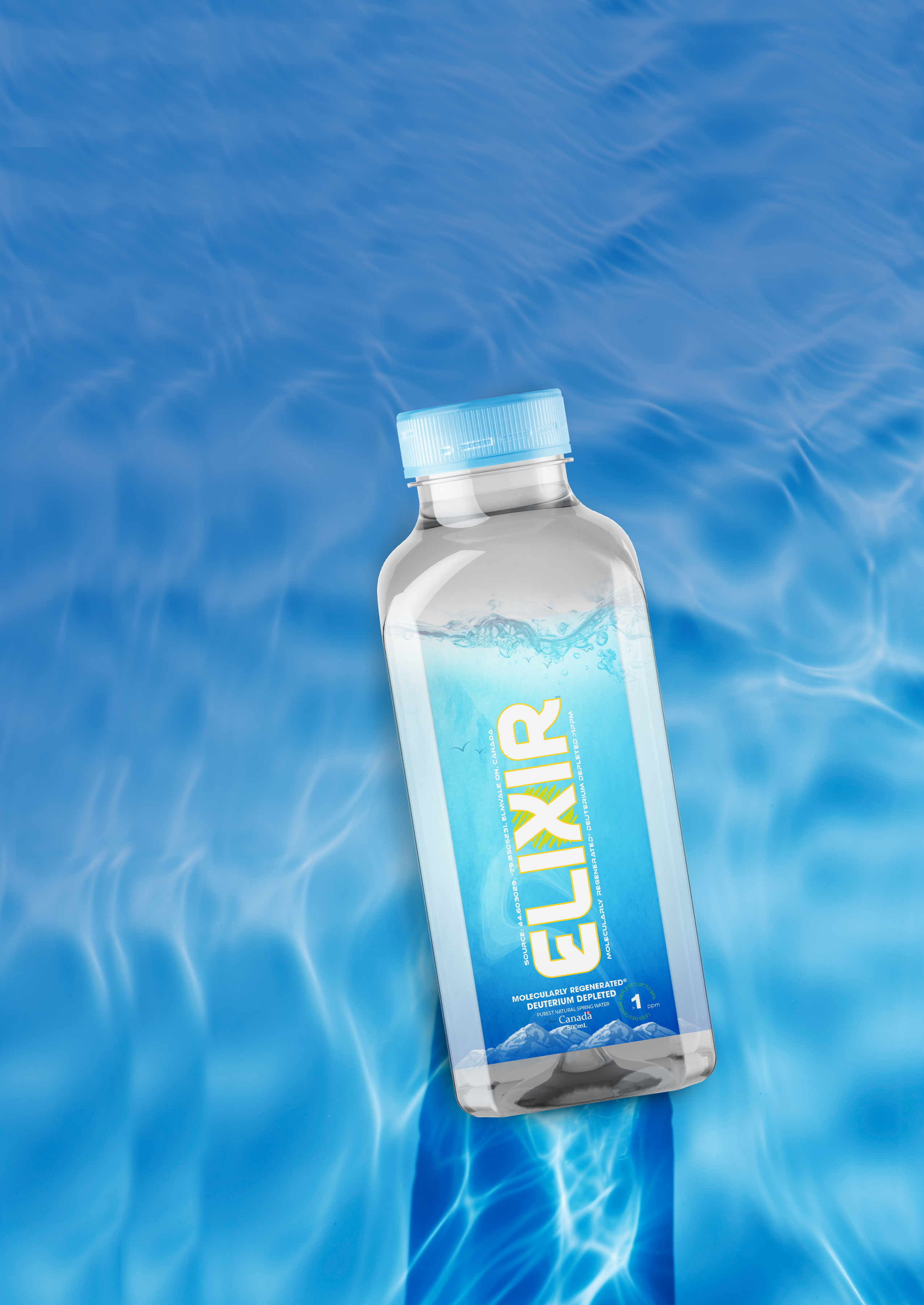
SUSTAINABILITY
DOING MORE WITH LESS
Building on our longstanding commitment to environmental sustainability, Canadian ELIXIR Technologies is proud to produce our iconic 500 mL bottles from 100% recycled plastic (rPET)* from the very beginning.
At Canadian ELIXIR Technologies Inc,. Sustainability is more than a buzzword-
it's a commitment tha shapes everything we do. Our innovative bottle design is a reflection of our values, emphasizing recyclability, efficiency and waste reduction.
As we continue to drive innovation in sustainable technologies, we invite you to be
part of our journey towards a healthier, greener, more advanced and more responsible future.
ERGONOMIC Bottle Design:
Our ELIXIR bottles are not just containers; they're a testament to our ethos. Crafted from eco-friendly materials, minimalistic in design, our bottles are composed of recycled plastic, harnessing the power of recycling to give new life to discarded materials.
Each bottle is designed with ease of use and safety in mind, ensuring that every element serves a purpose and avoids unnecessary waste. Our ELIXIR bottles are not just part of the recycling cycle; they're designed tochampion it.
By keeping our bottle design minimalistic and utilizing easily recyclable materials,
we empower individuals to participate in recycling without barriers.
Our goal is to promote a seamless transition from consumption to recycling, fostering a circular
economy.
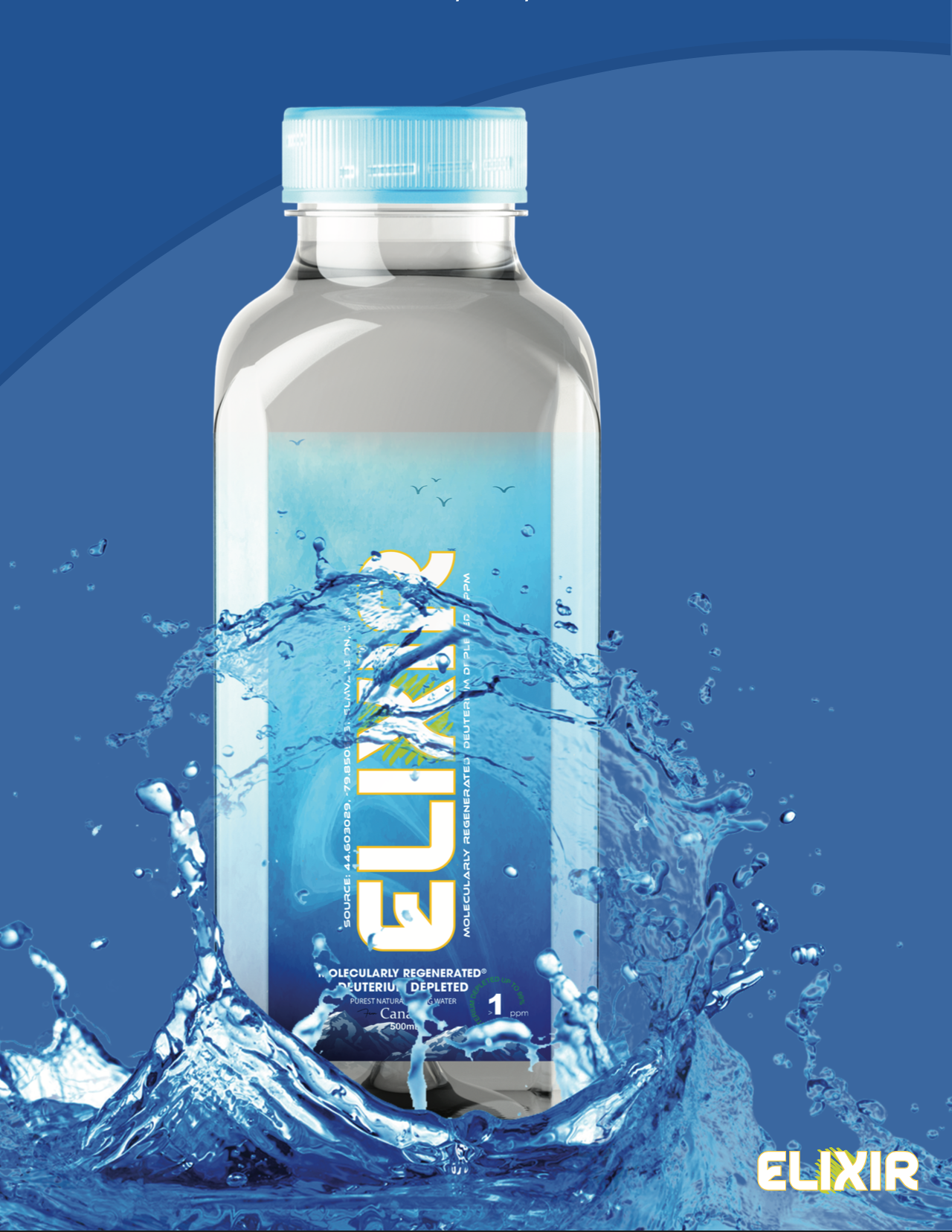
Holistic Approach To Wellness
Hydration Innovation
ELIXIR is Deuterium Depleted Water, an absolute innovation in the way we hydrate our bodies. Because ELIXIR water contains LESS THAN 1 parts per million deuterium, over 100x times less than the water we normally drink, it lowers the deuterium levels in our body at cellular level and helps us maintain our general wellbeing.
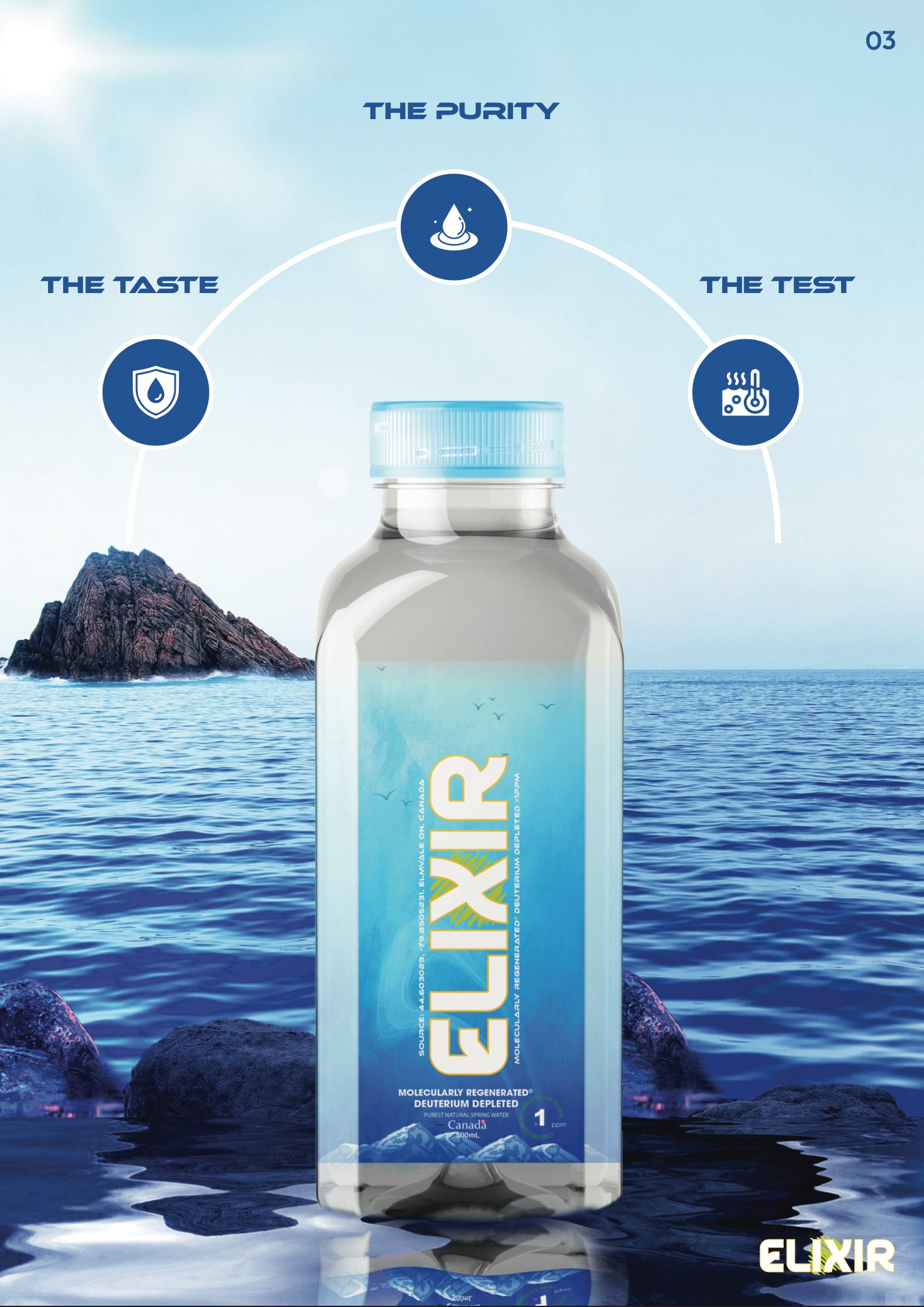
Made & Bottled in ELMVALE, ON, CANADA
LEADING QUALITY STANDARD
The natural clarity and unrivalled purity from ELMVALE, the region of Springwater Ontario, Canada serve as the first step of ELIXIR’s Divine Molecularly Regenerated Deuterium Depleted water production.
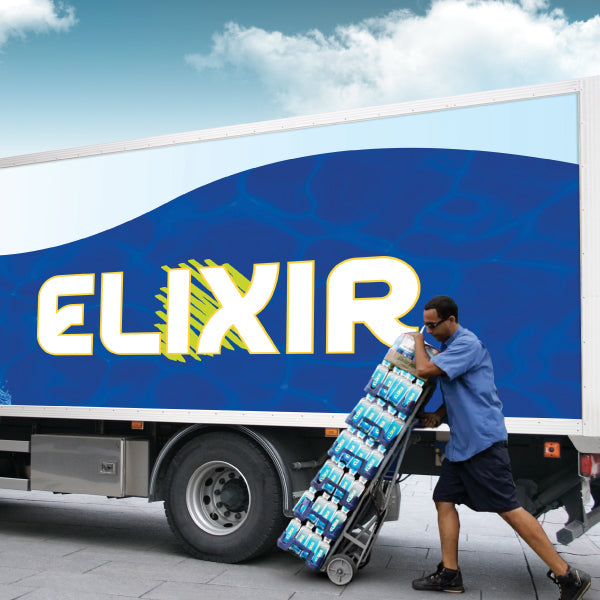
Our
Distribution
At Canadian ELIXIR Technologies Inc., we are dedicated to delivering the highest quality drinking water on earth, right to your doorstep!
Our distribution service is designed to seamlessly provide you with access to this extraordinary form of water
What Is Deuterium?
Deuterium is one of the three hydrogen isotopes. The nucleus of most hydrogen atoms in nature contains one proton, but the nucleus of some hydrogen atoms can contain one proton and one neutron or one proton and two neutrons.
The first and the most common isotope of hydrogen is call protium (chemical symbol: 1h), the second is named deuterium (chemical symbol: 2h or d), and the third one is tritium (chemical symbol: 3h or t). Protium and deuterium are stable isotopes, but tritium is an unstable one.
The abundance of deuterium in the water on earth is approximately one deuterium atom to 6.400 hydrogen atoms (156,25 parts per million-ppm), or 0.0156%. This deuterium concentration changes very little from a natural water source to another.
The deuterium concentration in the adult human body is approximately of 120 to 140 ppm. Although it doesn’t seem much, if we compare this concentration with concentration in plasma of other vital elements, we can see that deuterium is present in an amount six times greater than calcium and ten times greater than magnesium.
Deuterium Properties
Deuterium can have kinetic isotopic effects different than hydrogen has, and the physical and chemical properties of the deuterium compounds differ from those of hydrogen compounds. For example, D2O (heavy water) is more viscous and heavier than H2O (normal water).
Heavy water is approximately 10% more dense than normal water, enough for the ice formed of heavy water to sink in normal water.
The differences in connection energies and lengths of hydrogen isotope compounds are greater than the isotopic differences for any other element. The bonds between deuterium and tritium are stronger than those with hydrogen, these differences being enough to produce important changes in biological reactions.
Heavy water is toxic to eukaryotic organisms. If 25% of the water in the organisms is replaced by heavy water, problems in cell division and reproduction appear. If 50% of the water is replaced, the eukaryotic organisms die.
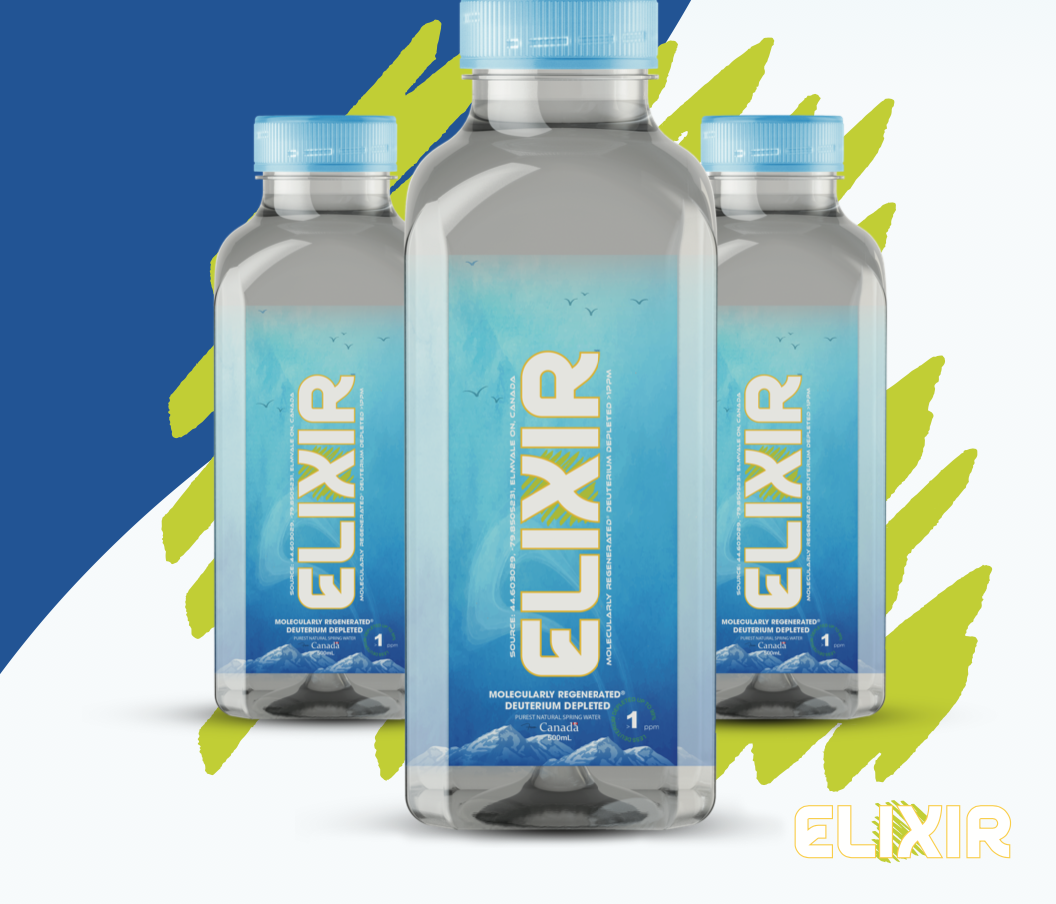
ELIXIR™
DEUTERIUM DEPLETED WATER >1PPM MOLECULARLY REGENERATED (49¢/100mL, Case of 6) - ELIXIR™
Share
